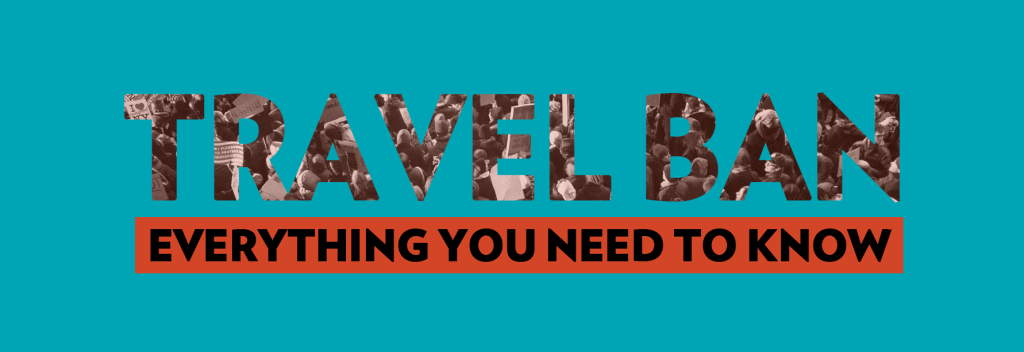
What is it?
On June 4, 2025, President Trump issued a Presidential Proclamation reinstating and expanding travel restrictions against nationals from 19 countries. The policy imposes a full ban on nationals from 12 countries and partial restrictions on 7 countries. Citing national security concerns, visa overstay rates, and perceived deficiencies in identity management and cooperation with U.S. immigration authorities, the administration claims these restrictions are necessary to protect U.S. interests.
The President invoked Section 212(f) of the Immigration and Nationality Act, granting authority to suspend the entry of foreign nationals deemed detrimental to the interests of the United States. Under this new Proclamation, the travel ban suspends the issuance of both immigrant and non-immigrant visas for many categories of travelers, significantly affecting Iranian nationals as well as citizens of other listed countries.
This latest ban builds upon the administration’s earlier travel bans, including Presidential Proclamation 9645 (Travel Ban 3.0), which was issued in September 2017. That earlier ban, which similarly suspended visas for Iranian nationals, remained in effect until it was rescinded by President Biden on his first day in office in 2021. The Supreme Court upheld that ban in 2018, and despite repeated legal and community challenges, the ban caused significant hardship for countless families—particularly Iranian Americans seeking to reunite with loved ones for life events such as weddings, funerals, graduations, and religious celebrations.
The new 2025 Travel Ban continues this legacy, effectively reinstating and expanding the controversial policy. According to the Proclamation, the travel ban is set to take effect on Monday, June 9, 2025, at 12:01 a.m. Eastern Time.
PAAIA is deeply concerned about the human impact of this policy. The ban undermines American values of fairness, justice, and equal treatment while penalizing Iranian nationals who overwhelmingly support democratic ideals and share strong ties with the United States.
Who is affected?
The 2025 travel ban significantly impacts individuals from 19 countries, suspending or restricting their entry into the United States. The Proclamation imposes a full suspension of entry, including both immigrant and non-immigrant visas, on nationals from the following 12 countries:
- Afghanistan
- Myanmar (Burma)
- Chad
- Republic of the Congo
- Equatorial Guinea
- Eritrea
- Haiti
- Iran
- Libya
- Somalia
- Sudan
- Yemen
Additionally, the Proclamation applies partial travel restrictions to nationals from seven countries. These restrictions may include suspension of B (business visitor and tourist), F (student), J (exchange visitor), and M (vocational) visa issuance, as well as potential reductions in visa validity periods:
- Burundi
- Cuba
- Laos
- Sierra Leone
- Togo
- Turkmenistan
- Venezuela
The impact on Iranian nationals is especially severe. Under this Proclamation, all Iranian nationals, except for those explicitly exempted, are barred from obtaining new visas or entering the United States. This includes students who, under the 2017 travel ban, were previously allowed to enter with valid F, M, and J visas.
In the 2025 ban, no such student exemption exists, meaning Iranian students hoping to study in the U.S. face new obstacles to their educational goals.
This policy deeply disrupts the ability of Iranian Americans to reunite with family members and celebrate important life events such as weddings, funerals, graduations, and holidays. This further strains family bonds and undermines community ties. Births, graduations, weddings, bat mitzvahs, first communions, and the kisses and hugs that come with the joy of daily life among family were missed, and these painful experiences are being repeated under the new ban.
Exemptions exist,
but they are limited and strictly defined.
The Proclamation provides exemptions for:
- U.S. Lawful Permanent Residents (Green Card holders)
- Dual nationals traveling on a passport from a non-listed country
- First degree family relations (spouses, children, and parents) of U.S. citizens (but not Green Card holders), subject to heightened proof of relationship, such as DNA evidence
- International adoptions
- Holders of certain official/diplomatic visas
- Athletes and support staff (including coaches and immediate family) traveling to participate in major international sporting events like the Olympics or World Cup, as determined by the State Department
- Holders of Afghan or U.S. Government Special Immigrant Visas (SIVs)
- Persecuted ethnic or religious minorities from Iran traveling on immigrant visas
While these exemptions apply on paper, their narrow scope does little to alleviate the broader hardship that Iranian families and communities are experiencing.
For Iranian nationals currently holding valid visas, those visas will remain valid until their expiration date. However, once your visa expires, you will not be eligible to apply for a new one. Additionally, unless your current visa is a multiple-entry visa, you may be barred from returning to the U.S. if you travel abroad.
For dual nationals holding a passport from a country not listed in the ban, the travel restrictions do not apply—provided you use that passport for entry into the U.S.
Although there are limited exemptions for immediate family members, these apply only to the spouses, minor children, and parents of U.S. citizens. Unfortunately, immediate relatives of lawful permanent residents (green card holders) and other family members, such as siblings, remain subject to the travel ban.
What is PAAIA doing?
The Public Affairs Alliance of Iranian Americans opposes President Trump’s reinstated travel ban, which disproportionately affects Iranian nationals and their families. Since the announcement of the 2025 travel ban, PAAIA has been proactively advocating for fair, effective policies that protect American national security without penalizing Iranian students, professionals, and families.
PAAIA has engaged with Executive Branch officials and key Congressional leaders to propose a “smart, targeted” alternative to the blanket ban. Specifically, we urged policymakers to focus on restricting entry for regime officials and their families—while exempting students and legitimate travelers who support democratic values. Our recommended approach mirrors the exemptions provided in the original 2017 ban, which recognized the positive contributions of Iranian students and the importance of family unity.
PAAIA continues to press for legislative solutions, such as the Temporary Family Visitation Act, that would address national security concerns while allowing Iranian Americans to maintain vital family connections. We believe that a just and effective immigration policy must balance the protection of U.S. interests with the preservation of America’s long-standing commitment to fairness, justice, and family unity.
We remain dedicated to updating our community with the latest developments, providing resources, and offering guidance to those impacted by the travel ban. As we did during the previous bans, we will stand with the Iranian American community, working tirelessly to protect the rights and dignity of all those affected by this policy.
What did PAAIA do in the past?
During the previous iteration of the travel ban, commonly referred to as Travel Ban 3.0, PAAIA worked tirelessly to advocate for the Iranian American community and ensure that discriminatory policies did not go unchallenged.
The third version of the ban included a provision that allowed consular officers to grant case-by-case waivers if applicants met certain strict criteria. Recognizing the devastating impact of this ban on Iranian families, PAAIA filed a lawsuit against the Trump Administration and submitted an amicus brief to the Supreme Court to highlight the ban’s discriminatory impact and the flawed waiver process.
Through collaboration with Senator Chris Van Hollen’s office, PAAIA sought clarification from the State Department regarding the waiver process. Despite claims that waivers were available, the State Department revealed that only 2% of applicants were “cleared for a waiver” as of April 30, and it remained unclear how many of those applicants actually received one. Senator Van Hollen later obtained additional data showing that, as of October, only 6% of total applicants and just 1% of Iranian applicants had been “cleared for a waiver,” confirming the policy’s discriminatory nature.
Justice Breyer, in his dissent from the Supreme Court’s narrow 5-4 decision upholding the ban, cited PAAIA’s amicus brief and referred to the waiver process as “window dressing.” Undeterred by the Court’s decision, PAAIA continued to fight alongside our coalition partners, the Iranian American Bar Association (IABA) and Pars Equality Center, challenging the discriminatory ban and pressing for justice until the ban was ultimately repealed by President Biden.
Immigration Attorneys
With the Travel Ban recently reinstated, visa applicants may face significant challenges in securing approvals as the administration implements the new policy.
If you have the means, it can be beneficial to hire a U.S. immigration attorney to assist with your case. An immigration attorney can help you understand how the new travel ban affects your specific situation, guide you in gathering required documents, contact embassies on your behalf to inquire about your application, and prepare you for a visa interview.
However, hiring an attorney does not guarantee that your visa application will be approved. Below, we’ve compiled a list of reputable websites where you can find prominent immigration lawyers.
The Iranian American Bar Association (IABA)
- Has been working with PAAIA and Pars Equality Center to combat the Travel Ban and they are part of the lawsuit that focused on the ineffectiveness of the ban’s waiver provisions
- IABA is an organization of Iranian American lawyers, so the Travel Ban hits close to home
- IABA website contains contact information for multiple lawyers, but not all of them specialize in immigration
- Released a report detailing their work on the Travel Ban
- Worked with PAAIA and Pars Equality Center to combat the Travel Ban and they were part of the lawsuit that focused on the ineffectiveness of the ban’s waiver provisions
- Focused solely on Iranians and Iranian Americans, so immigration attorneys speak Farsi as well as English
- Has competent immigration attorneys and accredited U.S. Department of Justice representatives
- Provides information and help regarding the Travel Ban
- Provides detailed information about the Travel Ban
- Has obtained more than 14,000 visas and green cards for family members
- Immigration attorneys only and website is organized by visa type (employment, marriage, waivers, etc)
- Offers free consultations & has a toll-free phone number for persons located outside the U.S.
- Attorneys are fluent in English, Spanish, and Farsi
- Provides detailed information on each visa category and when/how to apply
- Has a blog with useful information about various immigration issues including the Travel Ban
- Has an Iranian lawyer that has successfully gotten multiple waivers for Iranian clients
- Provides information on how to handle your consular officer interview
Stone Grzegorek & Gonzalez LLP
- Full-service immigration firm
- Has Travel Ban FAQ
- Multilingual, including some attorneys who speak Farsi
- Focuses on all different types of immigration but includes areas on green cards for family and for violence survivors
Webinar on the Repeal of the Travel Ban
On January 25th 2021, PAAIA hosted a webinar discussion following President Biden’s decision to repeal the Travel Ban.
Participants included:




Ali Rahnama (Moderator) is a civil rights attorney and a social justice advocate. He litigates cases involving civil and consumer rights, corporate fraud, discrimination, and government misconduct. He also represents clients before government agencies, administrative courts, and various legislative entities, and often advises clients seeking change in government policies.
